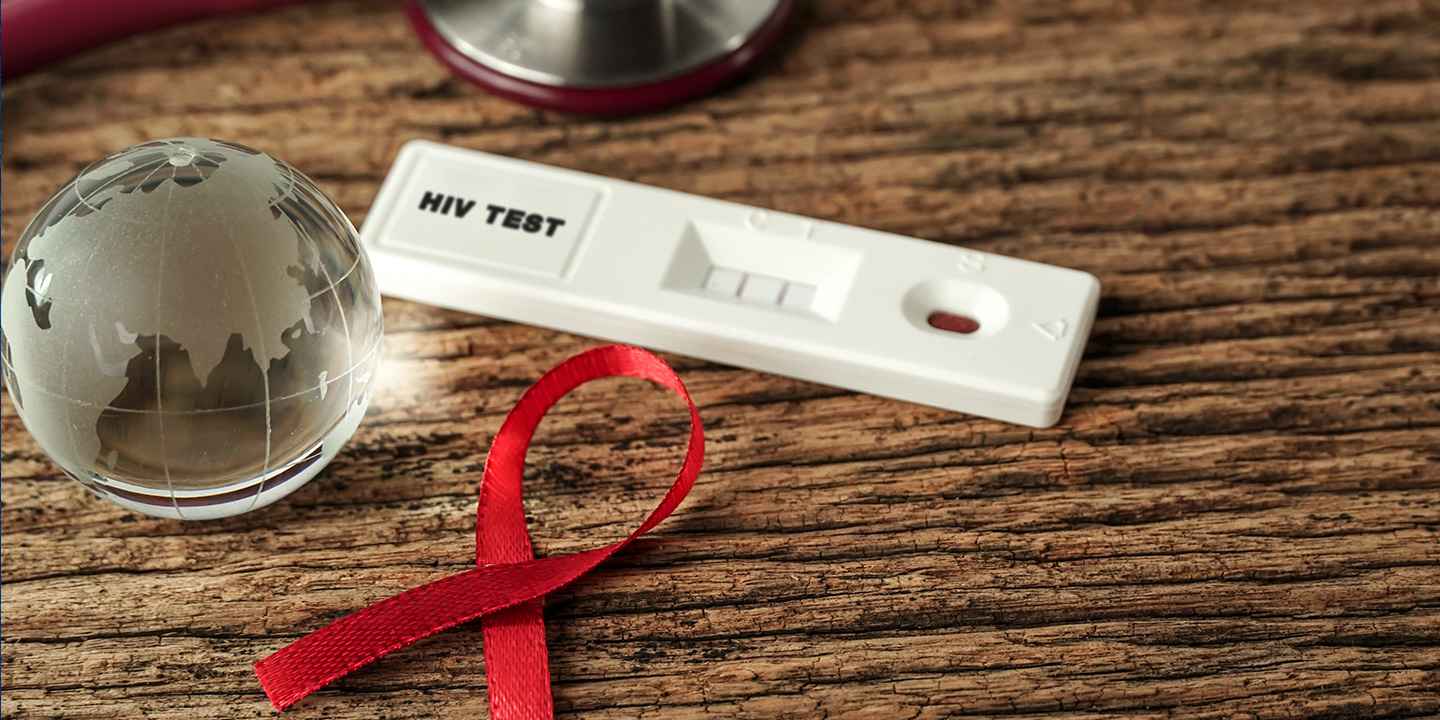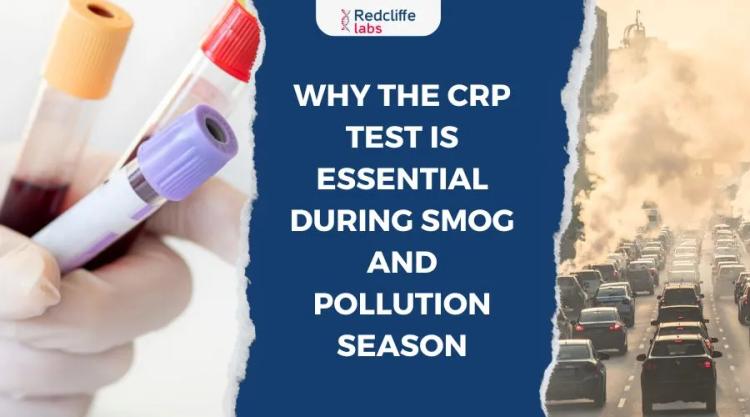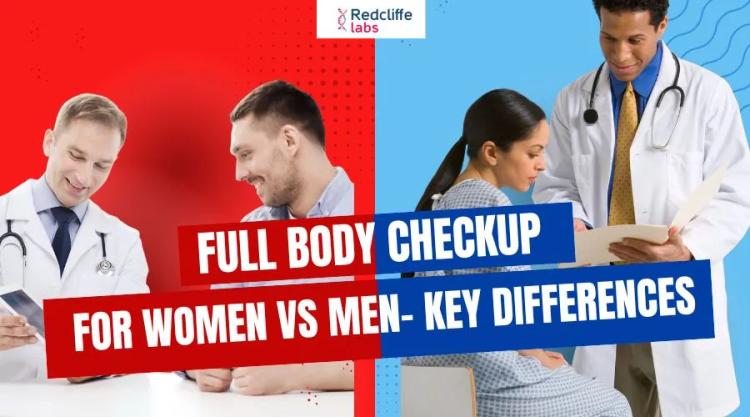HIV Test: types, in how many days HIV can be detected, understanding the test results

Medically Reviewed By
Dr Divya Rohra
Written By Dr. Ragiinii Sharma
on Mar 24, 2022
Last Edit Made By Dr. Ragiinii Sharma
on Mar 18, 2024

UNAIDS reports indicate that 37.7 million people were diagnosed with HIV in 2020, the number consistently growing since then. It is a global concern that affects not just adults but also children and teenagers.
The modernization and advancements of medicine and the healthcare industry have paved the way for HIV screening, making the process a lot more linear, secure and steadfast. All the available screening forms are done as blood HIV tests for quicker and more precise results.
If you aren’t sure about HIV screening, the types of tests, and the associated information, this article will explore all of that at length.
[embed]https://youtu.be/9AH9C6U62oc[/embed]
What is the Significance of HIV Testing?
HIV or Human immunodeficiency virus can cause deadly infections and even transform into AIDS or acquired immune deficiency syndrome.
If you have contracted the virus from an infected person, getting an HIV test as quickly as possible allows the quick start to the treatment procedure. An HIV+ person can live a healthy and fulfilling life with optimal treatment and lifestyle modifications.
Getting the HIV test also ensures that a positive person for the virus can take necessary precautions to ensure that they don’t pass it down to someone unconsciously.
Also, pregnant women who have chances of possibly contracting the virus from their partners should get tested early to avoid passing it on to the fetus developing in their body.
When should you get an HIV Test?
HIV test isn’t a regular or standard blood test that you get every six months. It is only when you are at risk of possibly contracting the virus from an infected person should you consider getting tested.
- You might be at higher risks of contracting HIV if:
- You have multiple sexual partners that you have unprotected sexual intercourse with
- You have had unprotected sex with someone who is HIV+
- You have injected unattended or infected needles for drugs
- You have had constant complaints about sexually transmitted disease
If you check positive for any of the above scenarios, it is ideal to get an HIV screening. This will rule out the possibilities and give an accurate answer so you can either be relieved or opt for further treatment options in the process.
What are the common types of HIV Tests?
There are typically three standard tests that come under HIV screening. These include:
- Antibody screening test
- Antibody/antigen combination test
- Nucleic acid test (NAT)
A few home-based testing kits can show possibilities of HIV infection, but they aren’t always ideal for a proper medical diagnosis.
[embed]https://youtube.com/playlist?list=PLh3RbqInKLSM77s0SNbYTGUGWB27-mjBX[/embed]
Let us discuss the tests in detail:
Antibody screening test
The antibody screening tests are rapid tests that check for developed antibodies against HIV in the bloodstream or the oral fluid.
So, in case you have contracted HIV, and the virus is actively present in your bloodstream, the immune system will do its job to defend the body and produce antibodies. These antibodies come up on the results of the antibody screening.
Immunoassay or ELISA testing are two of the most common antibody screening tests for HIV. Also, the antibody test is what most of the self-test kits are. They are rapid testers, so you can get a rough idea if your body has HIV or not.
The rapid versions of most antibody screening tests can provide the results within 30 m
Antibody/antigen combination test
Next on the list is the antibody/antigen combination test. This looks for traces of antibodies and antigens for HIV in the bloodstream.
In case you have contracted HIV, the test might show levels of p24, which is a type of antigen that triggers the immune response in the body against the HIV infection. Again, like the antibody screening, even the combined antibody/antigen are available for rapid testing.
However, keep in mind that the active antigen against HIV, which is p24, only shows up in the test results around 2-4 weeks after the infection. So, if you contracted the infection yesterday, the test results will still show negative even when you have the infection.
Being mindful of this active infection window for the virus is thus essential. If you are using a self-test at home, the results should come in 20 minutes or less.
utes after adding the sample. However, they aren’t always 100% accurate. In addition, false negatives are very common with these tests. So, if you have a risk of contracting HIV and you are sure about it, we’d recommend going for further blood testing.
Nucleic acid test (NAT)
NAT is the most accurate HIV testing option. Instead of looking for antibodies and antigens in the bloodstream, the NAT looks for the traces of the actual virus. It is a type of RNA testing that asserts if the person has HIV and even tells the degree of viral load in the body.
Booking a nucleic acid test can be a hassle because it is expensive and is only done for individuals exhibiting signs of HIV or having had a very high-risk exposure. These aren’t available for self-testing and are done at laboratories only.
How Soon After an Exposure to HIV Can a Test Detect If I Have the Virus?
So, how soon can HIV be detected by a blood test? This is the most common question that every patient has.
Much like pregnancy, you can’t particularly tell if you have HIV right after you contract the infection.
An individual with possible exposure to HIV needs to intimate their primary care physician to get post-exposure prophylaxis (PEP).
The window period for each of the HIV tests varies like mentioned below:
- The NAT can detect an HIV infection after 10-33 days.
- The antigen/antibody combination test can detect an HIV infection after 18-45 days of the HIV infection.
- The HIV antibody test window period is after 23-90 days of contracting the infection.
If you are sure you have been exposed to HIV due to unprotected sex or infected needle, and the test reports come out negative, get tested after the window period is over. However, if the reports come negative even after testing after the window period, the chances are that you are HIV negative.
HIV Test Results – Describing Them
If you aren’t sure about reading the HIV test results and deciphering them, this part of the article should give you a clear understanding.
How to read positive test results?
A positive HIV test means that you have traces of HIV in your bloodstream. However, testing positive for HIV doesn’t necessarily mean you have AIDS.
Getting the right kind and early HIV treatment like antiretroviral therapy (ART) can prevent an HIV-positive patient from getting AIDS. The proper medications can reduce the viral load in the bloodstream and further shield the immune system.
How to read negative test results?
If your HIV test results come out negative, we’d recommend taking precautions to prevent future contraction. Take the required steps to protect yourself from HIV by engaging in protected sexual intercourse and taking the prescribed PrEP medication.
Sometimes, it can take up to 6 months to generate enough antibodies in the bloodstream to come up as positive on the test reports. Getting false negatives on the HIV tests is very common, so getting routine testing after the maximum window period for HIV.
Conclusion
Contracting HIV is not a death sentence, unlike what many might think. Instead, getting proper HIV screening with the right treatment can effectively support a healthy life without putting you at risks of AIDS. Also, if you solely rely on the at-home tests for an accurate diagnosis, we’d recommend getting laboratory testing done for a quicker diagnosis of the disease.
Leave a comment
8 Comments
Naman
Jul 8, 2025 at 7:47 AM.
Mene 70 din hiv duo tets karvaya hai or negative hai to mujhe or test karana hoga, mujhe lakshan dikh rahe hai
Myhealth Team
Jul 9, 2025 at 1:57 PM.
Aapne 70 din baad HIV Duo test karvaya hai aur result negative aaya hai, jo aksar reliable hota hai. Lekin agar aapko abhi bhi lakshan dikh rahe hain (jaise bukhar, gala dard, thakan, ya rashes), to ek baar aur test karwana aur doctor se consult karna behtar hoga.
Pankaj Singh
Dec 4, 2024 at 9:39 AM.
My 4th generation and PCR RNA test came negative 100 days after exposure and 72 days after PEP. Do I still need to get further tests done? There are some symptoms which are happening along with PEP.
Myhealth Team
Dec 6, 2024 at 6:03 PM.
Your negative 4th generation and PCR RNA tests after 100 days and 72 days post-PEP are generally reliable. If symptoms persist, consult your doctor, as they could be related to other causes or PEP side effects.
Sachin
Nov 20, 2024 at 1:40 AM.
93 day ke baad antizen test karvaya tha ,negetive hai kya ye bilkul sahi hai
Myhealth Team
Nov 20, 2024 at 5:29 AM.
93 दिन के बाद HIV एंटीजन (p24 एंटीजन) और एंटीबॉडी टेस्ट करवाने पर नेगेटिव परिणाम आमतौर पर सटीक और भरोसेमंद होता है।
HIV संक्रमण की पुष्टि के लिए 90 दिनों के बाद किए गए एंटीजन और एंटीबॉडी टेस्ट को कन्क्लूसिव माना जाता है। हालांकि, अगर आपको अब भी कोई संदेह है या आपने उच्च जोखिम वाली स्थिति का सामना किया है, तो आप डॉक्टर से परामर्श लेकर अतिरिक्त पुष्टि के लिए रीटेस्ट करवा सकते हैं।
स्वास्थ्य संबंधी चिंताओं को लेकर हमेशा विशेषज्ञ से सलाह लें।
Baidyanath Tudu
Jun 28, 2024 at 11:03 AM.
Hiv test korte chai
MyHealth Team
Jun 30, 2024 at 12:38 PM.
Hi, Yes we do HIV test. If you want to book a test please call us at 8988988787.
జి. ఈశ్వర్
Apr 29, 2024 at 4:43 PM.
మేడం నేను ఒక ఆంటీని కలిసాను కలిసిన two days కి మా భార్యను కలిసాను మరుసటి రోజు టెస్ట్ చేయించుకున్నాను naku నెగిటివ్ అని వచ్చింది hiv లేదు అని అంటారా
Myhealth Team
Apr 30, 2024 at 7:30 PM.
అంతే, మీకు హివ్ లేదు అని చెప్పారు. అదేమి అంటే మీ మనసు స్థిరమైనది మరియు చింతని లేకపోయింది. సరైన ఆరోగ్య పద్ధతిని అనుసరించడం కూడా ముఖ్యం.
G ఈశ్వర్
Apr 13, 2024 at 4:43 PM.
ఒక వ్వక్తికి hiv ఉంటుంది ఆ వ్వక్తి ఆంటీ దగ్గరకు పొతే ఎన్ని రోజ్జులుకు బయటపడతాది
Myhealth Team
Apr 15, 2024 at 5:10 PM.
హెచ్ఐవి నిరోధక పదక్కులు ఉపయోగించిన వ్యక్తిని స్నానం చేసి అధిక సలహాలను అందించాలి. సమస్యల ఉపాయాలకు నిధాన పరిష్కారం చేయాలి.
Hh
Apr 12, 2024 at 2:09 AM.
I had unprotected oral sex and protected vaginal sex with sex worker belonging to african country, I don't know my Condom was intact right now I visited reputed hospital here in Chennai they prescribed me tld pep which I started at 67th hour . What's my query is when should I started to take test can I take nat hiv test at 10 day itself even if I'm on pep? or should I have to wait after pep? I read one article from uk saying that it didn't matter that pep doesn't affect result that much please reply me
Myhealth Team
Apr 12, 2024 at 6:46 AM.
Hi, I understand your concerns. It's commendable that you sought medical attention promptly and started TLD PEP (post-exposure prophylaxis) within the recommended timeframe. Regarding HIV testing while on PEP, it's generally advised to wait until after completing the full course of PEP before testing for HIV. This is because PEP can potentially interfere with the accuracy of HIV tests during the treatment period. Thankyou
Goutam Kumar Sharma
Sep 22, 2023 at 7:28 AM.
मैम मैं 24/08/23 को एक्सपोजर हुआ था,यस्टरडे टेस्ट करवाया नेगेटिव है,मुझे कोई दिक्कत नही है,मैं क्या समझूं
Myhealth Team
Sep 22, 2023 at 10:12 AM.
आपका COVID-19 टेस्ट नेगेटिव आया है, और आपको कोई लक्षण नहीं हैं, तो आप संभावना स्वस्थ हैं। फिर भी, सुरक्षा कदमों का पालन जारी रखें, जैसे कि मास्क पहनना और सामाजिक दूरी बनाए रखना।



